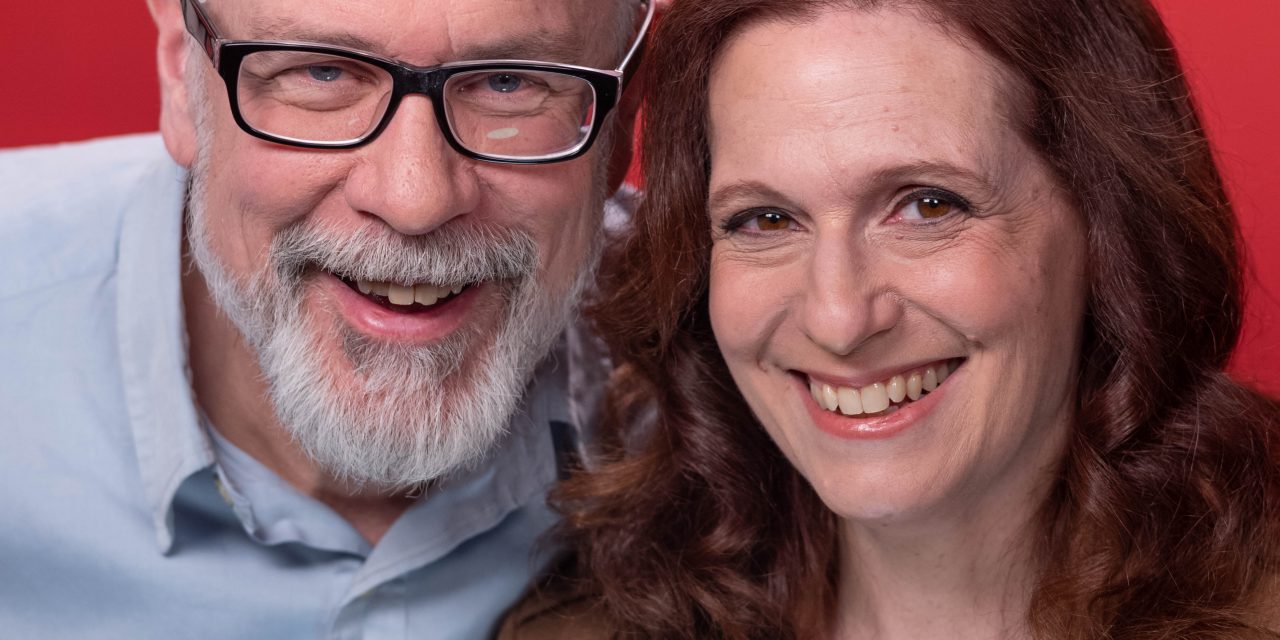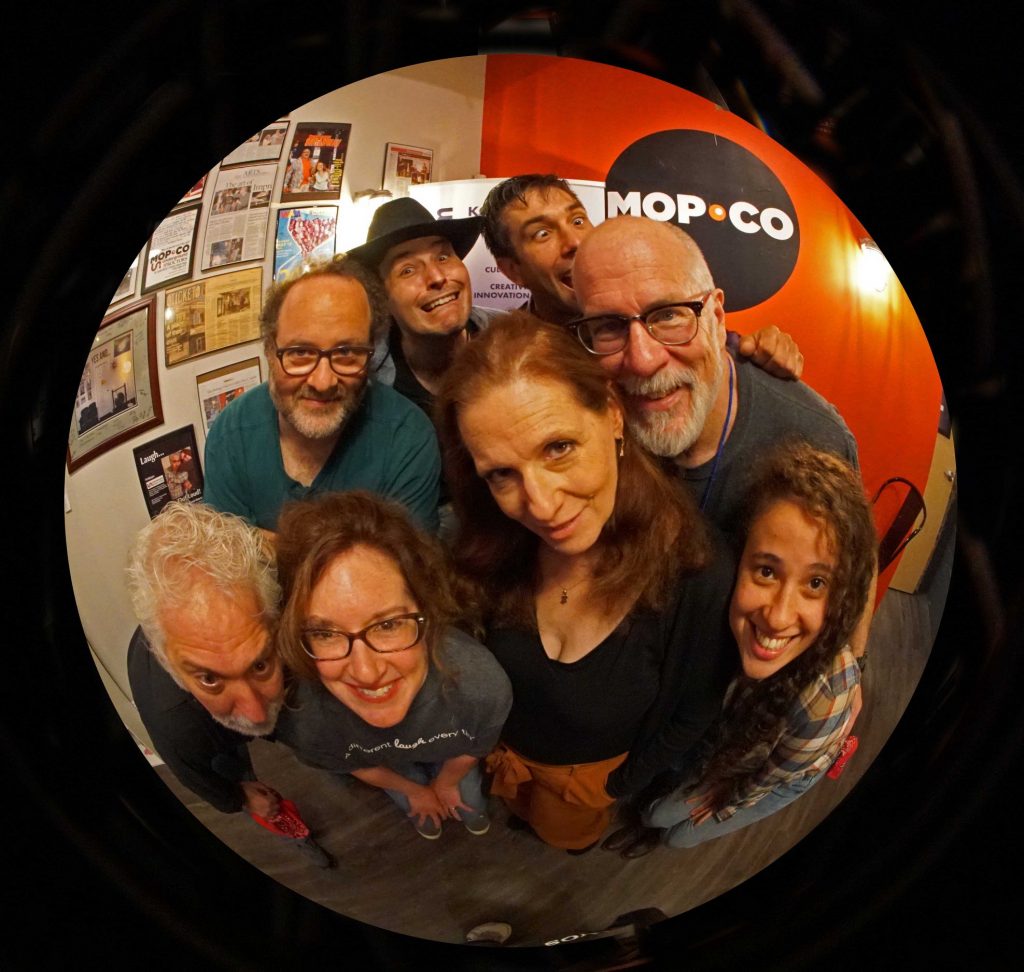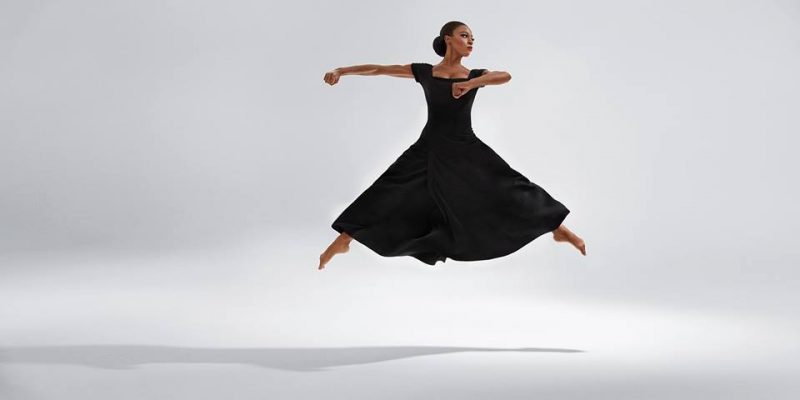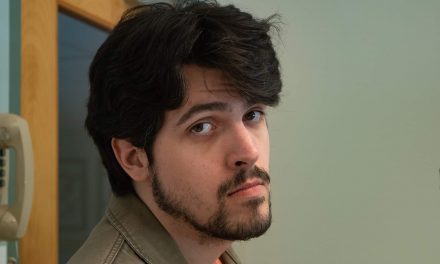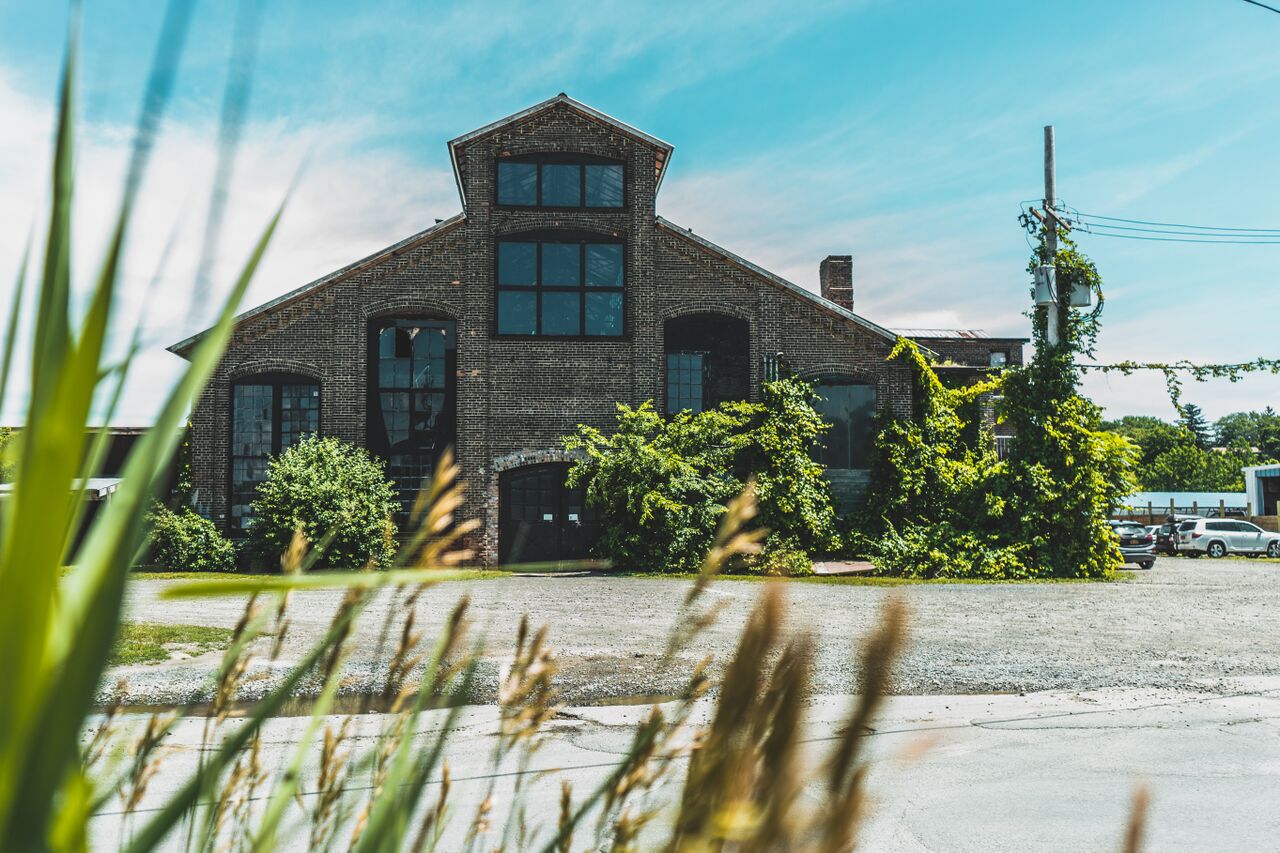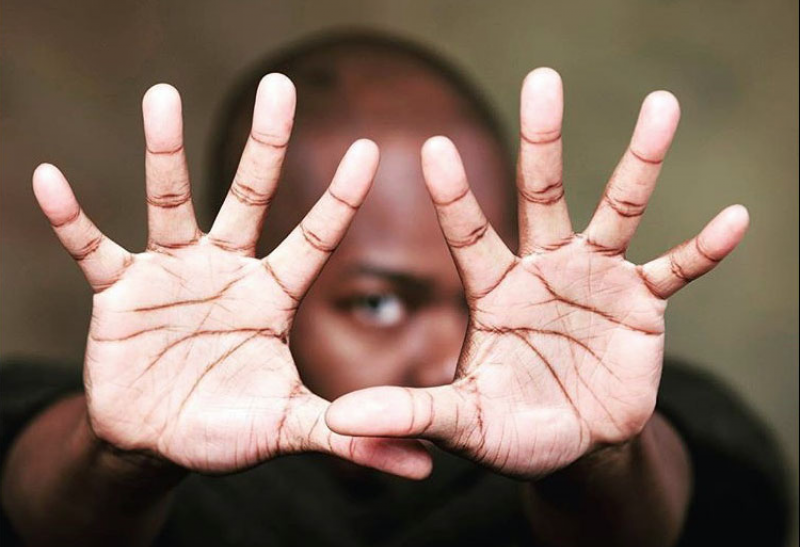Improvisers
Age: 63 and 55, respectively
Current hometown: Schenectady
Current project: For Burns, transforming the Mopco theater space with air scrubbers and ventilators, to make it a COVID-safe space for artists; for Koppett, ongoing work as a board member of the Applied Improvisation Network
Collaborative Media’s Maker of the Week is made possible by KeyBank.
Married couple Michael Burns and Kat Koppett represent two sides of a coin for improvisation. Under the banner of Schenectady-based Mopco LLC — and with constant crossover — Burns helms the Mopco Improv Theatre (formerly the Mop & Bucket Company), while Koppett runs a consultancy that brings principles developed in improvisation into organizational settings. Her eponymous business, Koppett, has clients all over the world.
Tell me about how you get started working together as improvisers.
Burns: OK, so, mid-90s I started the Mop & Bucket Company because I just wanted to get back to improv. I had done it a lot earlier, and I had worked with young people with improv. But I wanted to do it (for) myself. With that version of the company, we did gigs at Caffe Lena and at libraries and Steamer 10 and various places.
By around 2000, I was just tired because I was running the whole thing myself and there were other things I had to be doing. So I took a couple of years off, and then I got a phone call in 2005 asking if I could do a benefit for the new Wood Theater up in Glens Falls. I said, “Oh, sure!” and I hung up the phone and thought, “What did I just agree to? I don’t have a company.”
They presumed you could just bring together Mop & Bucket; that’s what they were looking for?
Burns: They didn’t know we hadn’t been doing anything for months, or two years, or whatever the heck it was. So I frantically made some phone calls, put together a slap-dash group — including one Kat Koppett, who had just moved to the area. We had maybe two rehearsals. We did a horrible, horrible improv show. It was awful. It was embarrassingly bad.
Even still, there was something in there that I said, “I like this.” Started doing it again. Shortly thereafter, this Koppett person who was always traveling around the globe and then coming into rehearsals saying, “Sorry, I was in India,” got to be more and more of a creative force in what we were doing.
We ended up getting a meeting with Philip Morris at Proctors, and he said, “What do you want to do?” We told him, and he said, “What’s stopping you?” I think most artists would’ve said, “Oh, there’s no funding, we don’t a rehearsal (space)” — they would’ve moaned and kvetched. Koppett said, “Absolutely nothing. We just wondered if you wanted a piece of the action.”
Well-played, Kat.
Koppett, laughing: Oops! I was new to the area, I didn’t quite know who I was talking to… luckily, he liked the answer.
Burns: So he said, “Great. Come work here.” Proctors was truly an incubator in the real sense of the word. Took this little tiny egg and helped us grow. And then, meanwhile through all of that, Kat’s been doing the real work of keeping the consultancy growing and thriving and producing the funds that make things possible.
Tell me more about that aspect, Kat. That was something you were doing even before Mopco?
Koppett: In parallel to Michael doing all of that with Mopco, I had been improvising. I mean, originally I was an actor and an improviser in New York, and then in San Francisco… I’d built a consultancy and sort of helped start this thing that was weird back then, and now is a huge global field of applied improvisation.
I was also a young mom, so when I came here it was partly because I’d lived in New York City and I’d lived in the San Francisco Bay area and they were both very hard places to afford to live. I was looking for a place where — since I was a consultant, and I was traveling all the time anyway — I could land, and afford, and be a mom.
The consultancy… sort of took traditional organizational development work and then pulled in improv and theatre and storytelling techniques to help people expand their “performance range” on whatever “stage” they were playing, and whatever “scenes” they were doing.
Sounds like that’s how you define applied improv?
Koppett: That’s the main thing… (and) what I’ve discovered over the few decades or so that I’ve been doing it, from my clients really, is that it’s not a metaphor.
It’s not a metaphor. It is what we’re doing, literally doing, all the time: creating little improvisational scenes, making performance choices about “How am I showing up right now?” For most of us, most of the time we’re making those performance choices habitually and unconsciously. What we try to do is help people make them deliberately and consciously, so that they’re clear about “What’s my objective in this moment?” and “How can I expand my range of options, so that when I’m not aligned with my objective, or getting what I want, I can make choices that will get me closer to that?”
When did you actually found Koppett?
Koppett: I had some version of it starting probably in 2001-ish. I wrote a book on applied improv in 2001 called “Training to Imagine,” which is right about when I first was out on my own doing it.
How would you describe the relationship between the two companies? It sounds like the one sort of fuels the other.
Burns: Well, you know, there’s pre-COVID (and) post-COVID. Really, the theatre (company) has been… we would not be having this conversation if Koppett weren’t there, because the money just wouldn’t work.
Like everybody else in the performing arts, we’ve been hit hard by this. It’s been disastrous. In pre-COVID times, financially, the Mopco theatre pulled in a minority share, shall we say, of the income. Lately it’s just been, “Yeah. Thank you, Koppett. We’re continuing to stay afloat because of the consultancy.”
Kat just very blithely said, “Yeah, I helped start this thing.” She really was one of the people founding the field of applied improv… and it has become a thing that’s global, and has thousands of practitioners. So she’s a creative powerhouse. Once in a while, I do a little work for Koppett. On a daily or weekly basis, Kat comes along and looks at something and says, “Hey, did you ever think of this?” and makes some profound offering in terms of creativity that helps the improv theatre keep going. It’s symbiotic, there’s no question about it. But without Koppett, there would be no Mopco. Without Mopco, Koppett would probably just be cruising right along…
Koppett: So that’s Michael’s version.
Koppett and the Mopco Improv Theatre are two departments under Mopco LLC… we are now officially one organization, and we, as Michael said, are completely symbiotic. The artistic performance/for-entertainment side of the business goes under Mopco, and the for-organizational-development goes under the brand of Koppett. But we share personnel, we share philosophy, and we cross-pollinate in all sorts of ways.
Burns: That is true.
Koppett: So that’s the answer. It will not be a surprise to anyone that working for major corporations in professional development pays better than entertaining individuals on a Saturday night in an 80-seat house, even in the best of times. We decided to be a for-profit company on the entertainment side, because we decided that it was just as hard work writing grants and competing for grants and answering to a nonprofit board of directors as it was to spend the same time and energy developing products that people would spend money for — going into schools and building an audience and marketing that product. And we would rather do that.
Of course, we need supplemental income. But certainly regionally, as opposed to internationally, I think Mopco is much better known than Koppett. That’s how we have our connections to the community, how we thrive artistically, how we train and develop our facilitators to do the work in the organizations, and how we inspire — keep the eternal lamp glowing, that eventually becomes organizational development work.
Let’s just say, worst-case scenario: If the Mopco improv aspect had to shut down, would you want to keep Koppett going without Mopco?
Koppett: Here’s the way I think of it. For like the first six months of COVID, when someone would ask us how we were doing, I would say, “Well, we’re sort of in the unfairly lucky category.” We’re healthy (knocking on wood) for the moment; it could change like that. And we’re solvent. One of the other reasons it feels to me like we’re unfairly lucky is we have a global network of artistic colleagues and professional clients. One of the gifts of this moment has been that what COVID has taken away with one hand, it’s sort of given back with the other. When we do our shows online… we have improvisers literally from all over the world coming to play with us. Old friends and new friends. In addition to playing with Mopco these days, I play with a company in California called Synergy Theater, which are some of my best and oldest improv mentors and friends from my days in New York City. So artistically, I get fed, in a way that’s fresh and new and exciting.
And my work for Koppett — I have new clients because of COVID. There’s a way that people recognize the value of applied improv now more than ever. It’s one of our taglines. It’s always been true that we didn’t know what was going to happen tomorrow… it’s always true that we’re living in a precarious moment, but now people recognize that. So, flexibility, resilience, connecting with other humans: People are recognizing that that’s necessary, and they’re seeking out improv more now than ever.
I can’t imagine a world where people don’t need applied improv — and where we aren’t hungry for the arts, and for improvisation specifically… but that’s different from having a building. The question is: What do we do with what we have? and How do we have to be flexible and adaptive and use what we’ve got? What Michael has been so amazing about is sort of seeing around the corners, before it happens and thinking “What comes next, what comes next?”
Burns: To underscore what Kat’s saying, it is delightful to have improvisers from, let’s see, India; London; Austin, Texas; San Francisco — the list goes on, and that’s amazing. But on the local side, I really do believe people are just going to be hurting for some kind of human experience with other people in the same space. So, COVID pods can get together and do stuff somewhere, but there may not be a place where they can do it. Families, small groups, classes and so forth; I think that’s a service that we can provide and it’s going to be really important.
Artists are going to want to create, so I think there’s going to be new discovery of theatre. There already is a huge amount of improv online. It’s a gigantic, thriving thing. But this (Zoom) format — heads and shoulders and rectangles — is gonna get old. Finding ways to play with that, I think, is what’s next.
(Our theater) is a space where (one) camera can face this thing, and another camera can face this thing and another camera can face this thing — and there could be four improvisers who are 20 feet or so apart from each other, and as far as the viewer is concerned, they’re all together. So that’s part of the game. And it’s got its challenges; I bat my head against the wall sometimes, but I’m in there with cables and mixers and cameras and so forth, playing. I’ll get it.
I notice that (both of you) don’t use the word “work” as much as you use the word “play.”
Koppett: It’s funny, someone else called me out on that the other day, too. Linguistically, I feel like I use it in a couple of different ways. I have my roots in the Theatresports community, which is a format started by Keith Johnstone… his idea was to have audiences have the same passion and knowledge about what they were watching as sports fans did.
Some of it comes from that. But I’m also using the word “play” in the sort of “play versus work,” like “Let’s play together.” Increasingly, sort of consciously over the years, I find myself choosing that word… “I’m looking forward to playing with you later” as opposed to “meeting.”
Does that apply for you as well, Michael?
Burns: Not always. I come from this take-yourself-too-seriously “Actor” place. I didn’t grow up with the Theatresports thing, so we always talked about “The Work” (laughter). Which, when I look back on it, it’s like, “You pretentious little pup.”
I am one of the many people who finds it amusing, actually, that Kat says “Let’s play,” because she’s one of the hardest-working people I know.
Talk about working as a married couple. You met through the company?
Koppett: We both had other spouses, and we worked together at Mopco. I had moved here because my daughter’s father and I were married at the time… his family was here, that’s how we moved here. Michael was married. Luckily, I found Mopco, and for a couple of years that was what was true.
Then at some point, we both weren’t married any more. We were both divorced, and we were still working together. We had a show one night, and Michael left the stage to go out into our “soundproof lobby” while we got some (audience) suggestions that he had to come back in and guess. This was in Troy — what building was it?
Burns: You know, I don’t know. it was across the street from the brewing company now… It was a first floor, open, in one of those 19th century Troy buildings, and the door to the lobby was the door to the sidewalk, which had like a 12-inch step down. I took a step out the door, not realizing, and gave myself a horrible sprained ankle. The show wasn’t over yet.
Koppett: He came back in, into the middle of this guessing scene, pulled up a chair and sat down. I was like “What is he doing!”… after the show, (I) spent the next week or two nursing him back to health, and he fell in love with his nurse. The rest is history.
You’ve really joined forces in your professional lives and your personal lives. Has it been challenging?
Burns: Oh, hell, yeah.
Koppett: After about a decade, we found a good therapist. And it’s been better since then.
Burns: I think if you were to interview people who have a mom-and-pop store… any time you have a married couple that works together, I think there are fundamental things that are different. You’ve got to find a way to balance when are we working, and when aren’t we, (and) when are we just home? And now, it’s compounded by the whole COVID thing.
I think for both of us, there’s been a lot of self-discovery, and a lot of negotiation and a lot of innovation. How do we do this without driving ourselves or each other crazy?… We get so much from each other personally, and professionally, it’s like, this is worth it. There would be times when we would say “This is hard right now.” But it’s always worth it.
Koppett: Things have been actually really good during COVID for us… we’ve been nesting a lot. One of the things that was hard about working together was that we could fool ourselves into thinking that we were having “together time” as a couple, when actually we were not having any together time as a couple. I was traveling, I was working, I was very absent. And Michael was just as busy. He was at the theater 80 or 90 or 100 hours a week.
Burns: Well, 70 or 80, anyway.
Koppett: Whatever — a lot. The fact that we were in the same house, or that we were in the same building working, made us feel like we were together as a couple, but in fact we weren’t. When everything shut down, and I wasn’t on three red-eyes a month, and we were actually in the same space at the same time, looking at each other…
Burns, laughing: On Zoom.
Koppett: …(and) being clear about what’s work, what’s us, and how do we protect space for both of those things and distinguish those things.
Burns: In any marriage, you’re going to have disagreements, different views and so forth. What we’re dealing with is: There’s two business operations and a marriage, which, in effect, if you do it very unromantically, is a third business operation. Marriage is a contract. We’ve got opportunities here for collaboration and conflict both, galore.
Koppett: Not to mention that our business is being a consultancy about communication skills, so we both think we are experts. And you know how that goes.
Why is improv important to the world that we’re living in today?
Koppett: Do you want to go first, Michael, or do you want me to talk for the next six hours?
Burns: I’ll try to go first. If I remember my very first experiences as a child doing scripted theater, they had to do with standing awkwardly in an uncomfortable position, trying to remember something that didn’t really make sense to me, and saying it loud enough that I didn’t get yelled at, while wearing some awful thing that didn’t fit… it wasn’t pleasant; it wasn’t nice. It wasn’t good.
When people improvise, there’s none of that crap. They are sort of their best selves, coming up with wonderful ideas — and horrible ideas — and making connections with each other, in new ways, all the time. One of the joys for me, more than performing by far, is teaching. And seeing people light up and become a sort of bigger person as a result of improv. We see it time and time again that people’s lives are transformed by this stuff… the world needs that more than ever.
Koppett: One of the fundamental things people think about, when they think about improv, is thinking on your feet and being adaptive and being flexible. They come to us and they say “We need this now more than ever” because we are confronted by the fact that we don’t know what’s going to happen next. We never did… but now we know it.
You mean specifically now, in the time of this pandemic?
Koppett: This moment in the world. Everything, all at the same time… March 12, they pulled the plug and everybody was like, “Everything that we ever thought we could count on is stopped.”
Improv is the gym for exercising a whole bunch of muscles that we need for successful human interaction. Those are things like: Really being present. Mindfulness. Listening and receiving. Expanding our personal presence and ability to influence others. Connection with other people, as Michael was saying. Empathy, flexibility, resilience. Storytelling, which is a sense-making mechanism: How do I even receive what’s happening and make sense of it for myself in my own mind, and so that I can express myself and communicate with other people?
All of these things that we talk about as qualities of a human being, skills that we need to have in the world, as leaders, as community members, as humans… improvisers have figured out how to articulate those mindsets, and exercise those muscles. Whereas other people talk about them, we know what to do to make those muscles and mindsets stronger.
I can’t help but notice how passionate you are when you say those words.
Koppett: I’m not actually overstating it… if anyone can save the world, I think it’s improvisers.
Find them online: Website, Facebook, YouTube
Wish to nominate a Maker of the Week? Email nominations.
Photo: Peter Carrolan
Spiral clockwise from center: Kat Koppett, Michael Burns, Erin Washington, Heather Schwartz, Jon Kimlicko, Mark S. Meritt, Alex Timmis, Matt Via.

